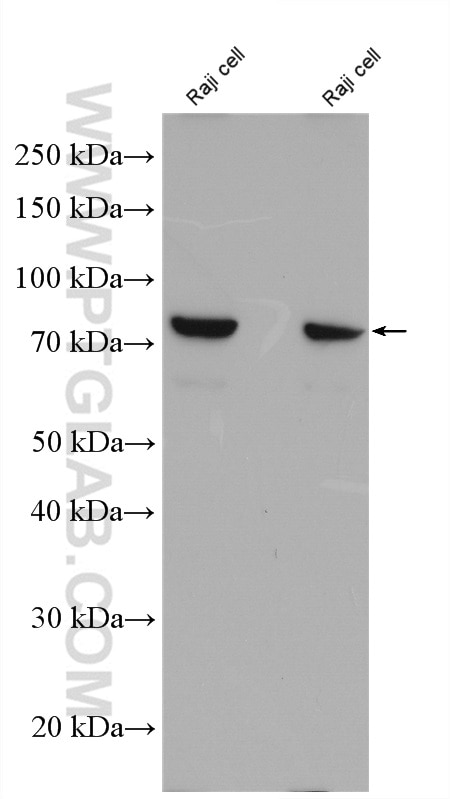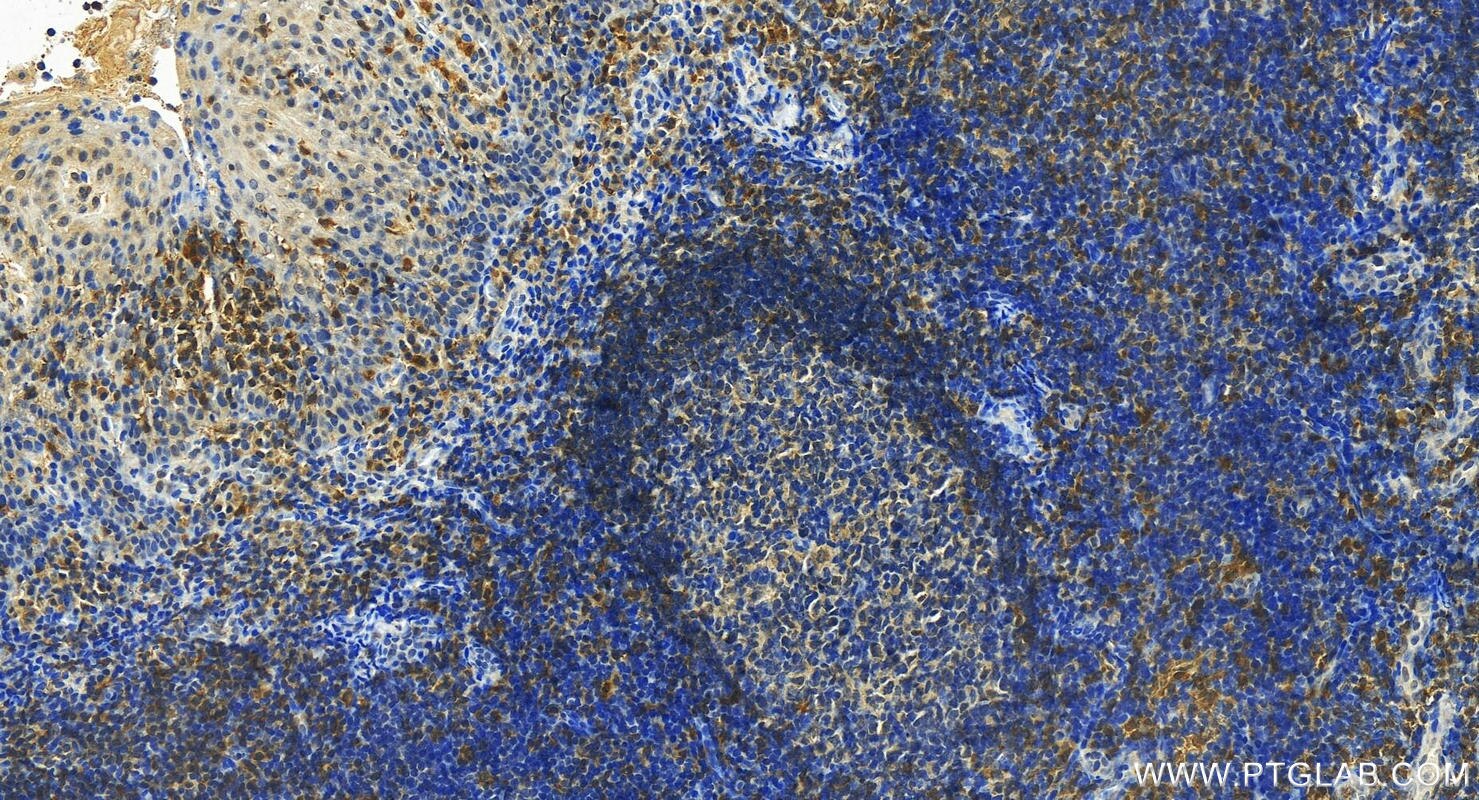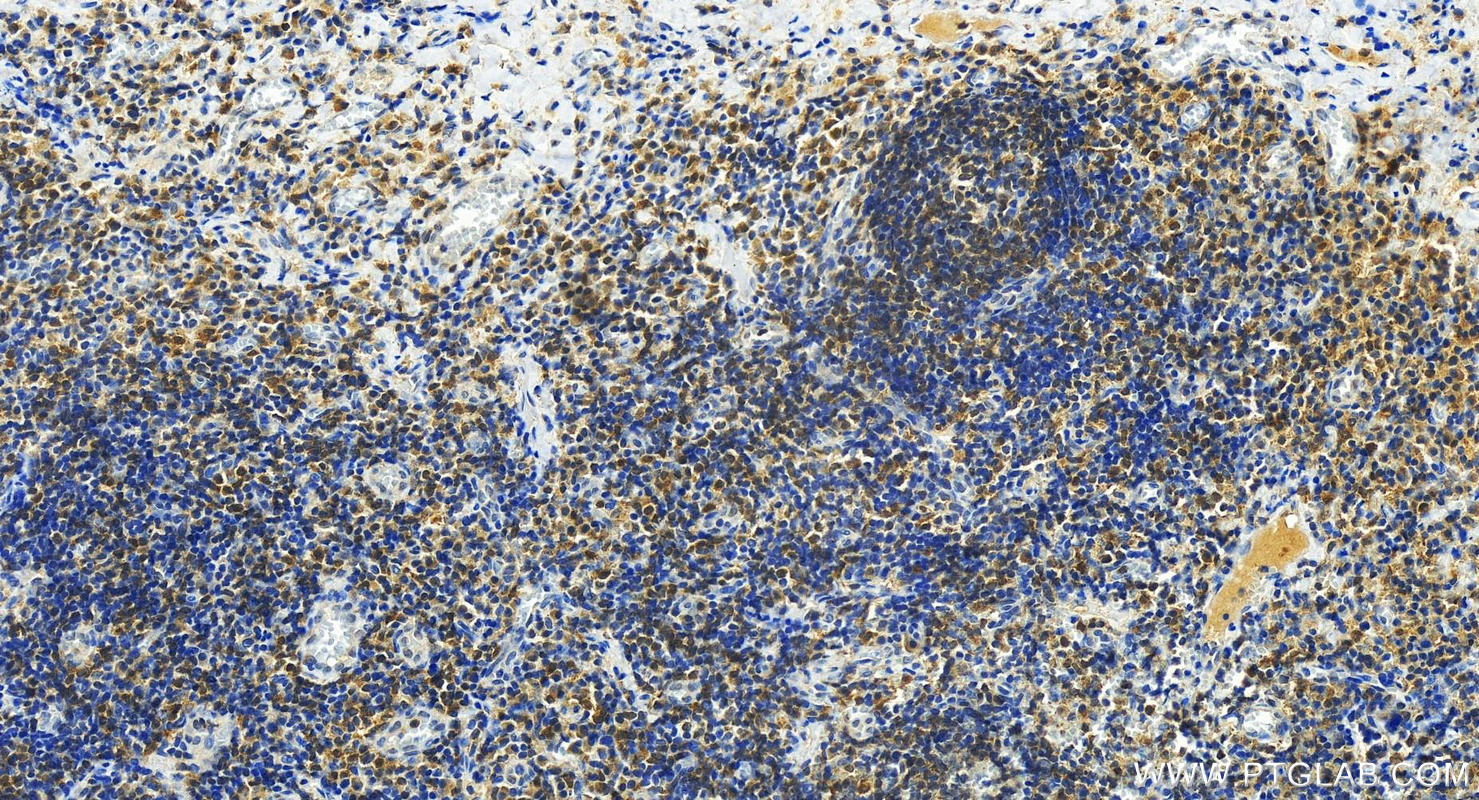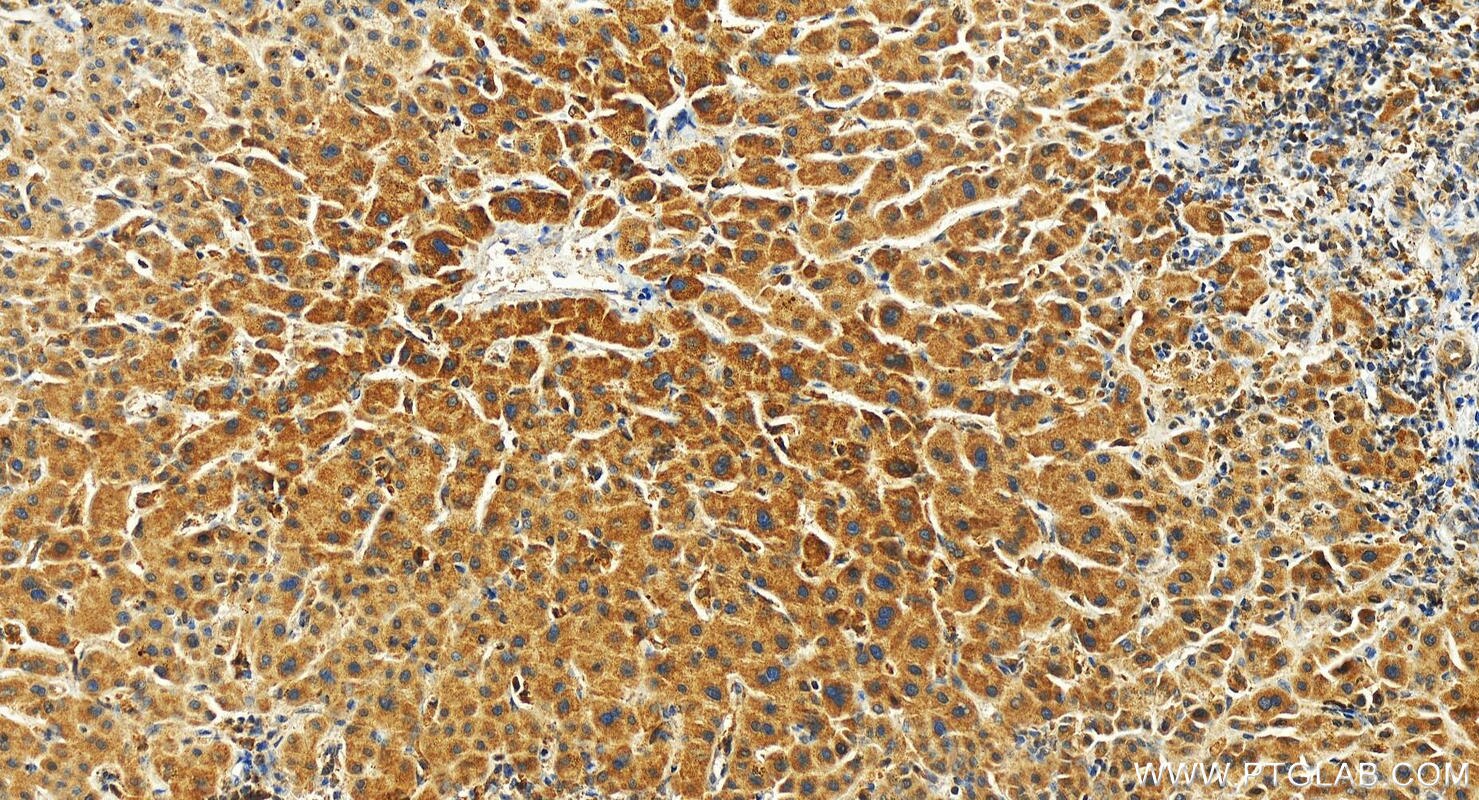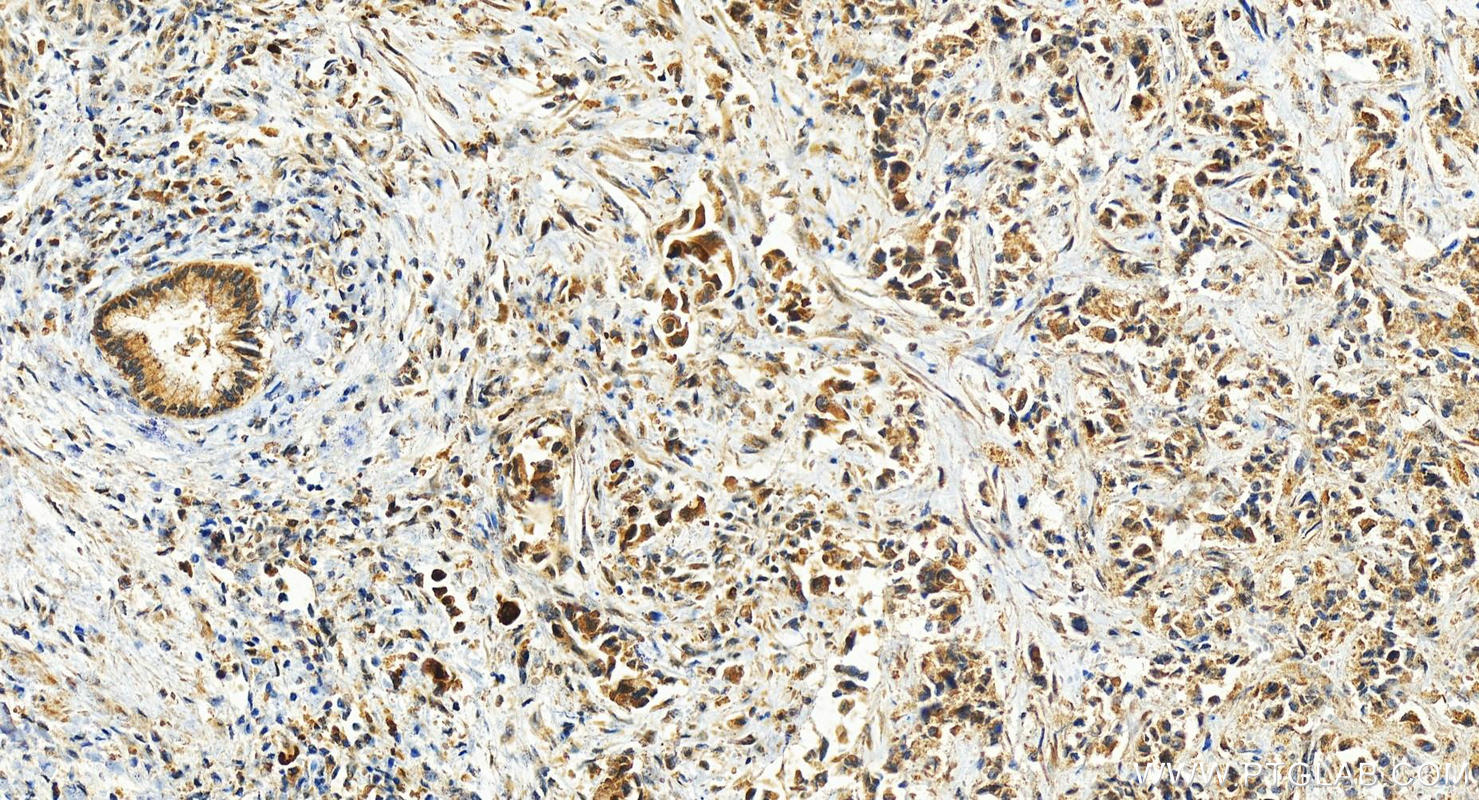FGD2 Polyklonaler Antikörper
FGD2 Polyklonal Antikörper für WB, IHC, ELISA
Wirt / Isotyp
Kaninchen / IgG
Getestete Reaktivität
human
Anwendung
WB, IHC, ELISA
Konjugation
Unkonjugiert
Kat-Nr. : 27068-1-AP
Synonyme
Geprüfte Anwendungen
| Erfolgreiche Detektion in WB | Raji-Zellen |
| Erfolgreiche Detektion in IHC | humanes Tonsillitisgewebe, human intrahepatic cholangiocarcinoma tissue Hinweis: Antigendemaskierung mit TE-Puffer pH 9,0 empfohlen. (*) Wahlweise kann die Antigendemaskierung auch mit Citratpuffer pH 6,0 erfolgen. |
Empfohlene Verdünnung
| Anwendung | Verdünnung |
|---|---|
| Western Blot (WB) | WB : 1:500-1:2000 |
| Immunhistochemie (IHC) | IHC : 1:50-1:500 |
| It is recommended that this reagent should be titrated in each testing system to obtain optimal results. | |
| Sample-dependent, check data in validation data gallery | |
Produktinformation
27068-1-AP bindet in WB, IHC, ELISA FGD2 und zeigt Reaktivität mit human
| Getestete Reaktivität | human |
| Wirt / Isotyp | Kaninchen / IgG |
| Klonalität | Polyklonal |
| Typ | Antikörper |
| Immunogen | FGD2 fusion protein Ag25782 |
| Vollständiger Name | FYVE, RhoGEF and PH domain containing 2 |
| Berechnetes Molekulargewicht | 655 aa, 75 kDa |
| Beobachtetes Molekulargewicht | 75 kDa |
| GenBank-Zugangsnummer | BC023645 |
| Gene symbol | FGD2 |
| Gene ID (NCBI) | 221472 |
| Konjugation | Unkonjugiert |
| Form | Liquid |
| Reinigungsmethode | Antigen-Affinitätsreinigung |
| Lagerungspuffer | PBS with 0.02% sodium azide and 50% glycerol |
| Lagerungsbedingungen | Bei -20°C lagern. Nach dem Versand ein Jahr lang stabil Aliquotieren ist bei -20oC Lagerung nicht notwendig. 20ul Größen enthalten 0,1% BSA. |
Hintergrundinformationen
FGD2 is a member of the formin family of proteins, which are known for their role in regulating the assembly of actin filaments. Formins are characterized by their ability to nucleate and elongate actin filaments, and they play a crucial role in processes that require dynamic actin structures, such as cell motility and cell division. Mutations or alterations in FGD2 have been associated with certain developmental disorders and diseases. For example, mutations in FGD2 are a cause of faciogenital dysplasia (Aarskog-Scott syndrome), a condition characterized by facial and genital abnormalities and short stature.
Protokolle
| PRODUKTSPEZIFISCHE PROTOKOLLE | |
|---|---|
| WB protocol for FGD2 antibody 27068-1-AP | Protokoll herunterladen |
| IHC protocol for FGD2 antibody 27068-1-AP | Protokoll herunterladenl |
| STANDARD-PROTOKOLLE | |
|---|---|
| Klicken Sie hier, um unsere Standardprotokolle anzuzeigen |
